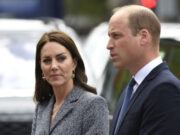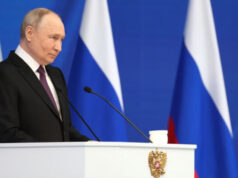Serbia is still waging war against Kosova and has been violating CEFTA for many years now
By Harry Bajraktari
Kosova government decided on Wednesday to increase taxes on Serbian and Bosnian imports to 100 per cent.
The move is a long overdue response to Serbia’s relentless efforts to sabotage the youngest republic in Europe. It deserves our full support and understanding.
This is not a decision taken lightly. Kosova is a strong believer in free trade and for many years, has been a willful and patient participant of a long negotiating process with its former invader and colonizer.
Through the direct mediation of the European Union as well as the outside support and encouragement of the United States, Kosova leaders have negotiated and signed a number of practical agreements with Serbia, which were aimed at improving the lives of the citizens in both countries.
The agreements were also supposed to help the integration of Kosova and Serbia in the large European family.
Kosova’s good will, unfortunately, has been taken for weakness; its desire to cooperate has been exploited; and its faith in the process has been deeply injured.
Serbia has failed to implement the agreements signed in Brussels. It has threatened the lives and the livelihoods of the ethnic Serbs, who are employed in Kosova’s multi-ethnic institutions. It has undermined the efforts to establish full rule of law in the territory of Kosova.
In addition, Serbia has not ceased the efforts to arrest the leaders of Kosova, abusing its membership in Interpol with baseless international warrants. It has spent millions in absurd campaigns to secure derecognitions of the Republic of Kosova and to delay Kosova’s membership in international organizations, more flagrantly in the recent votes of UNESCO and Interpol.
Compared to all these, Kosova’s decision to tax the goods coming from Serbia (and Bosnia) is a restrained move, which aims not to punish these two countries, but to establish some degree of reciprocity.
Serbian companies sell nearly half a billion euros worth of goods, every year, in Kosova, so it does not come as a surprise that Belgrade is outraged about the decision.
To Serbia it is an issue of money, but to Kosova it is an issue of existence. There is no doubt that the taxes raised from this flourishing trade go to finance Serbia’s foreign affairs operations and military rearmaments.
Serbia does not hide its goal to cancel the independence of Kosova. Its campaign to this end has never ceased and has been very expensive. Belgrade will not stop until its former colony is wiped off, once again, from the political map of Europe.
As a sovereign nation, Kosova has a right to defend itself and refuse to help financing the diplomatic aggression that threatens its very existence.
EU wants Kosova to respect CEFTA, but as the government of Ramush Haradinaj has pointed out, Serbia and Bosnia have been breaking the agreement for years now by using non-tariffs measures that are costing millions of dollars to Kosova businesses. They refuse to recognize the test analysis of Kosova exporters or the certificates of origins of Kosova authorities and abuse the sanitary inspection process, to name a few.
Kosova trucks are not allowed to use Serbia as a transit to the EU market and every flight in and out of Kosova has to circumvent Serbia to great cost of doing business with and traveling to Kosova. More than 100 Serbian firms have now won bids in Kosova. By contrast, Kosova companies are forbidden from bidding in Serbia. Serbia and Bosnia are practically dumping their goods in Kosova market, using illegal incentives, to great disadvantage of domestic producers.
The list is too long and EU and CEFTA authorities should have dealt in them already, including the flagrant refusal to implement the agreement of the Integrated Border Management for which EU worked hard and invested a lot.
EU has been generous with its assistance to Kosova from the inception of the new republic, but the path towards the much promised integration has been a great disillusion.
The contrast cannot be starker. Serbia is the region’s forerunner, with more chapters opened by EU than any other country in the so-called Western Balkans. Compare this to Kosova, for which the process has not even started. The much promised free-visa regime has been granted to countries like Ukraine (while in war with Russia) or countries from outside of Europe, but it is still denied to Kosova. The latter remains an isolated black hole in the continent.
To many Kosovars this look like open discrimination. While Serbia has been rewarded for bad behavior (such as siding with Russia instead of EU over a number of issues), Kosova has been punished, despite meeting a series of ever-changing conditions including an unfair border correction with the neighboring Montenegro.
Clearly, EU is paralyzed by the five dissenting countries, which refuse to recognize Kosova, but if the block cannot stop Serbia from trying to destabilize Kosova and destroy its existence, the least it should do is not ask Kosova to pay for it.
EU should clean its own house first and unify its foreign policy and position on Kosova instead of using the young republic as a scapegoat just because it is small and vulnerable.
The High Representative of EU for Foreign Affairs and Security Policy, Frederica Mogherini has not lived up to her expectations and if she is decided to leave a mark on this process, she should work to convince the five dissenting EU members to put aside their domestic agendas for the sake of stability and peace in Europe.
Furthermore as a stakeholder of peace and stability in the region, EU should question Serbia’s expensive diplomatic campaign against Kosova, the next time the assistance funds for Belgrade are determined.
Serbia has failed to recognize its violent colonization of Kosova. Not a single politician, including the most “pro-European”, “liberal” ones, has yet to apologize for the crimes against humanity that their country’s government and armed forces committed in Kosova. Not a word of sympathy and regret for the mass rape-campaign. Not one government in the last 20 years has tried to disclose the ugly process of moving and hiding the bodies of thousands of civilians from Kosova to Serbia. Today’s top leaders of Serbia were once part of the same regime that waged four wars in the Balkans during the 1990s and tried to deport more than a million of Kosovars out of their country. Their language has adapted to the new times, their goals haven’t.
Serbia is never going to negotiate in good faith with Kosova. Not with this crop of leaders. Not without recognizing the crimes of its past. Not without ceasing and desisting from its main goal of the last 20 years, the military recapture of its former colony. As in the 1990s, the outside world risks missing once again the main clues from the leaders in Belgrade.
The government of Ramush Haradinaj may have many critics, but the support for this move is almost universal among Kosovars. It is an unavoidable response to the existential threat coming from the north and to the complete lack of perspective for its European integration. Kosova has been pushed to the corner and is now fighting back. I am heartened by the wide support that the measure has received in Kosova. We all should rally behind this decision and help the young republic survive. Enough is enough!
Harry Bajraktari is a leader of the Albanian-American community and founder of Illyria newspaper, in New York.

















